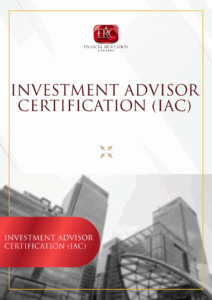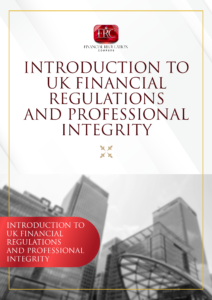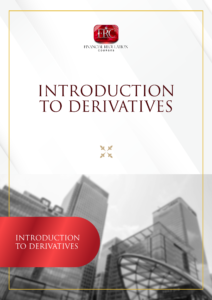The Investment Advisory Certificate (IAC) is one of the most recognised credentials in the financial services industry. Whether you are an aspiring financial adviser, compliance professional, or ESG specialist, understanding the IAC certification requirements is the first step in deciding whether this path aligns with your career goals.
In this guide, we’ll explore who can take the IAC exam, what academic and professional requirements exist, the eligibility pathways, and why this certificate is increasingly valuable in today’s regulation-driven financial markets.
Table of Contents
-
What is the IAC Certificate?
-
Why the IAC Matters in Finance
-
Core Eligibility Criteria
-
Who Can Take the IAC Exam?
-
Finance Graduates
-
Compliance Professionals
-
ESG & Sustainability Advisers
-
International Candidates
-
Career Switchers
-
-
Age and Academic Requirements
-
Professional Experience Requirements
-
Documentation & Application Process
-
Common Misconceptions About Eligibility
-
Benefits of Meeting IAC Certification Requirements
-
FAQs
1. What is the IAC Certificate?
The Investment Advisory Certificate (IAC) is a globally recognised credential that sets a benchmark for professionals working in the fields of investment advisory, financial regulation, and client suitability standards. At its core, the certificate is designed to validate both technical knowledge and practical competence, ensuring that advisers and compliance officers are fully prepared to meet the complex challenges of today’s financial services industry.
The IAC certificate equips candidates with a broad yet specialised foundation in key areas such as:
-
Financial regulation and professional integrity
-
Advisory ethics and client relationship standards
-
Risk management principles
-
Investment products, including derivatives
-
ESG frameworks and responsible investment practices
-
Taxation considerations in advisory roles
What makes the IAC stand out is its practical orientation. Unlike broader and highly theoretical qualifications such as the CFA or CAIA, the IAC is specifically designed to focus on regulatory knowledge, compliance, and advisory practice. This makes it particularly valuable for professionals who interact directly with clients, regulators, and institutional investors.
Another defining feature of the IAC is its modular structure. Candidates can either complete the full certificate or pursue its three stand-alone units individually:
This flexibility means that the IAC Certification Requirements can be approached step by step, depending on a candidate’s professional needs and career goals. For instance, a compliance officer may focus initially on financial regulations, while a trading professional may start with derivatives.
By meeting the IAC Certification Requirements, professionals gain an internationally recognised credential that signals competence, integrity, and readiness to take on advisory and compliance roles. The certificate is also an attractive option for international candidates and career changers, since the IAC Certification Requirements are designed to be accessible, without demanding years of prior industry experience.
Ultimately, the IAC certificate serves not only as a career entry point but also as a gateway to advanced professional qualifications. Many candidates use it as a stepping stone towards more demanding programmes such as the CFA, CAIA, or specialist regulatory designations. By bridging academic learning with applied financial practice, the IAC certificate is uniquely positioned to meet the growing demand for skilled, regulation-aware financial professionals.
2. Why the IAC Matters in Finance
The modern financial services industry is evolving at a rapid pace, shaped by globalisation, regulatory reforms, and rising client expectations. Financial professionals are expected not only to provide sound investment advice but also to demonstrate a strong grasp of compliance, ethics, and regulatory obligations. Frameworks such as MiFID II in the EU, SEC standards in the US, and FCA rules in the UK have raised the bar for accountability, making professional certification more critical than ever.
This is where the Investment Advisory Certificate (IAC) plays a pivotal role. The IAC Certification Requirements are designed to ensure that candidates acquire practical knowledge of regulations, advisory ethics, and investment risk, making them well-prepared for client-facing and compliance-driven roles. By meeting these requirements, professionals demonstrate a proven commitment to both competence and integrity.
Key Reasons Why the IAC Matters:
-
Employers prefer IAC-certified professionals
Firms across banking, wealth management, and asset management increasingly favour candidates who have satisfied the IAC Certification Requirements, as this signals lower training costs, reduced compliance risks, and immediate readiness for regulated activities. -
Competitive advantage in the job market
In a global landscape where thousands of finance graduates enter the workforce each year, the IAC certificate distinguishes candidates. Meeting the IAC Certification Requirements demonstrates initiative and regulatory awareness, providing a significant edge in job applications and career progression. -
Recognition across global financial hubs
From London’s financial district to Wall Street in New York and Dubai’s growing investment sector, the IAC is respected as a practical and regulation-focused credential. Employers worldwide recognise that professionals who have fulfilled the IAC Certification Requirements are better equipped to handle compliance challenges, client suitability checks, and evolving ESG standards. -
Relevance to ESG and sustainability trends
As Environmental, Social, and Governance (ESG) principles take centre stage, professionals are expected to align investment advice with sustainability regulations. The IAC equips candidates with the skills to navigate ESG frameworks, ensuring that those who complete the IAC Certification Requirements remain relevant in a market increasingly shaped by responsible finance.
The Bottom Line
The IAC is more than just a technical certificate; it is a career enabler. By ensuring that professionals meet the IAC Certification Requirements, employers can confidently hire individuals who are not only knowledgeable but also prepared to uphold the highest regulatory and ethical standards. For candidates, the IAC represents a globally portable credential that opens doors to roles in compliance, investment advisory, and ESG consulting across multiple jurisdictions.
3. Core Eligibility Criteria
The IAC certificate is open to a broad range of candidates. The general requirements include:
-
Minimum undergraduate-level education (finance or related fields preferred).
-
Strong command of English (as exams and case studies are conducted in English).
-
Proof of identity and education.
-
Commitment to ethical standards of practice.
4. Who Can Take the IAC Exam?
a) Finance Graduates
Recent graduates in finance, economics, accounting, or business are ideal candidates. The IAC provides a career entry point into:
-
Investment banking
-
Wealth and asset management
-
Risk and compliance roles
b) Compliance Professionals
Professionals already working in compliance, audit, or regulatory affairs can take the IAC certificate to strengthen their credentials and expand opportunities in advisory roles.
c) ESG & Sustainability Advisers
With ESG (Environmental, Social, Governance) now integral to investment decisions, ESG consultants and sustainability professionals are pursuing the IAC certificate to gain credibility with financial institutions.
d) International Candidates
The IAC has no geographic restrictions. Candidates from the UK, USA, India, UAE, Singapore, and other financial hubs are eligible, provided they meet the academic and language requirements.
e) Career Switchers
Professionals from law, consulting, or corporate sectors seeking to move into finance or investment advisory can pursue the IAC, making it a gateway certificate.
5. Age and Academic Requirements
-
Age: Candidates must usually be 18 years or older at the time of registration.
-
Academic: A bachelor’s degree or equivalent diploma is recommended. In certain cases, substantial work experience may substitute for formal academic qualifications.
6. Professional Experience Requirements
The IAC exam is structured to be accessible even to those with little or no work experience. However, candidates with 1–3 years of experience in finance or advisory roles often find the material easier to apply in practice.
7. Documentation & Application Process
To apply for the IAC exam, candidates typically need to provide:
-
A completed registration form.
-
Proof of identity (passport or national ID).
-
Proof of academic certificate (degree or diploma).
-
Payment of the exam fee.
8. Common Misconceptions About Eligibility
-
❌ “I need at least five years of finance experience” – Not true; the IAC is designed for both graduates and professionals.
-
❌ “The IAC is only for investment bankers” – Incorrect; it is equally relevant to compliance officers, ESG advisers, and financial consultants.
-
❌ “It’s limited to the UK” – False; the IAC is recognised internationally.
9. Benefits of Meeting IAC Certification Requirements
-
Career Growth: Wider opportunities in compliance, advisory, and ESG consulting.
-
Global Recognition: Opens career doors in London, New York, Dubai, and Singapore.
-
Employer Preference: Many firms now seek certificate holders as part of hiring standards.
-
Pathway to Higher Credentials: Provides a foundation for CFA, CAIA, or advanced regulatory certificates.
10. FAQs
Q1. Can I take the IAC exam without a finance degree?
Yes, you can. While a finance or economics background provides a natural advantage, the IAC Certification Requirements are intentionally designed to be inclusive. Candidates from law, business, compliance, accounting, or ESG-related fields regularly sit the exam and perform well. The certificate focuses on building regulatory and advisory knowledge from the ground up, meaning motivated learners without a pure finance degree can succeed with the right preparation.
Q2. Is prior work experience mandatory?
No, prior work experience is not compulsory. The IAC certification is accessible to both recent graduates and early-career professionals. However, candidates with 1–3 years of experience in finance, risk management, or compliance often find it easier to apply the concepts to real-world scenarios. That said, the syllabus is structured so that even those with no prior professional background can follow the material effectively and achieve the certificate.
Q3. Can international students apply?
Absolutely. The IAC Certification Requirements do not limit eligibility based on geography. The certificate is recognised in major financial hubs such as London, New York, Dubai, and Singapore. As long as international candidates meet the minimum academic requirement and demonstrate proficiency in English (since the exam is conducted in English), they are eligible to register. Many professionals use the IAC to gain a competitive edge in cross-border roles where regulatory knowledge is crucial.
Q4. What documents do I need for registration?
When applying for the IAC exam, candidates typically need to provide:
-
A government-issued photo ID (passport or national identity card).
-
Academic certificates showing degree or equivalent qualification.
-
In some cases, proof of work experience if being used as a substitute for formal academic study.
-
A completed registration form and payment confirmation for the exam fee.
Ensuring these documents meet the official IAC Certification Requirements is key to a smooth application process.
Q5. Is the IAC equivalent to the CFA?
No. The Chartered Financial Analyst (CFA) qualification and the IAC certificate serve different purposes. The CFA is a broad, advanced-level programme covering portfolio management, investment analysis, and financial modelling in depth. In contrast, the IAC Certification Requirements focus specifically on financial regulation, client suitability, derivatives, risk, taxation, and advisory standards. For many professionals, the IAC is a stepping stone that builds practical knowledge before pursuing broader and more demanding credentials like the CFA.
Q6. Can I study the IAC modules separately?
Yes. The IAC is structured into three units which can be taken as stand-alone certificates or combined for the full designation. These include:
This flexible structure means you can tailor your learning to your career stage and gradually meet the IAC Certification Requirements at your own pace.
Bringing It All Together
The IAC certification requirements are deliberately structured to be inclusive, ensuring the certificate is accessible to a wide spectrum of professionals — from fresh graduates to experienced practitioners seeking to sharpen their regulatory knowledge. By keeping the entry barriers fair and flexible, the IAC opens doors for graduates, mid-career professionals, and international candidates alike.
If you are committed to advancing in areas such as investment advisory, compliance, or ESG integration, the IAC certificate provides a direct route into some of the most competitive roles in global finance. Unlike other credentials that may require years of prior experience, the IAC is designed to blend academic knowledge with practical regulatory insight, making it highly relevant to today’s financial markets.
Another advantage of the IAC pathway is its modular structure. Each of the three IAC units can be studied and completed as stand-alone certificates, giving candidates flexibility in tailoring their learning journey. These modules include:
For candidates who wish to specialise, these individual modules offer targeted expertise. For those aiming to gain the full IAC certificate, completing all three ensures a comprehensive foundation that is internationally recognised.
Ultimately, whether you are just starting out in your career, considering a transition into finance, or aiming to boost your professional credibility, the IAC certificate can serve as the edge that sets you apart. Its global recognition, practical focus, and career relevance make it not only a credential but also a career accelerator.
Financial Regulation Courses
